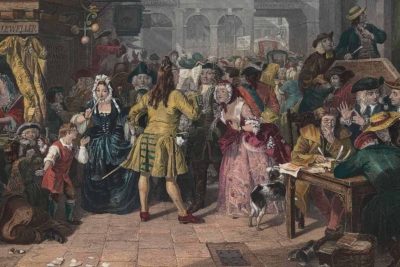
Sainte Juste: A Brief Overview of St. Just's Life and Legacy

The life and legacy of Sainte Juste, or St. Just, encapsulate a pivotal era in French history. Born during a time of profound change, his role as a revolutionary leader significantly shaped the course of the French Revolution. Known for his unwavering idealism and loyalty to the revolutionary cause, St. Just became a key figure alongside Maximilien Robespierre, advocating for radical policies that aimed at transforming French society.
Though his life was tragically cut short, the impact of St. Just's contributions to the Revolution remains a subject of significant historical interest. From his early days as a political thinker to his instrumental role in the Reign of Terror, Sainte Juste left a legacy that is both celebrated and scrutinized. As we delve into the intricacies of his life, we uncover the complexities of a man deeply committed to the ideals of liberty, equality, and fraternity.
- Background of Louis de Saint-Just
- Early Life and Education
- Rise to Political Prominence
- Key Contributions to the French Revolution
- The Ventôse Decrees and Their Impact
- Role in the Military Successes
- Association with the Reign of Terror
- Arrest and Execution
- Legacy and Historical Significance
- Conclusion
Background of Louis de Saint-Just
Louis de Saint-Just, often referred to simply as St. Just, was born on August 25, 1767, in the small town of Decize, located in the central part of France. Coming from a relatively modest background, his family was not part of the aristocracy, which would later influence his radical views. His father, a military officer, instilled in him a sense of discipline and service, which would later manifest in his fervent dedication to the revolutionary cause. As a youth, St. Just showed considerable promise and intelligence, excelling in his studies and displaying a keen interest in philosophy and politics.
Early Life and Education
St. Just's early education was marked by a focus on literature and the burgeoning ideas of the Enlightenment. He was particularly influenced by the works of Voltaire and Rousseau, which shaped his understanding of human rights and social justice. This intellectual upbringing equipped St. Just with a philosophical framework that aligned closely with the revolutionary ideas sweeping through France during the late 18th century. As he matured, he began to engage with the political discourse of his time, eventually leading him to Paris, where he sought to make his mark in the tumultuous political landscape.
Rise to Political Prominence
By 1791, St. Just had firmly entrenched himself in revolutionary politics. His articulate speeches and passionate advocacy quickly garnered attention. It was during this time that he wrote his influential work, "Esprit de la révolution et de la constitution de France," which outlined his vision for a new social order based on principles of justice and equality. In 1792, he was elected to the National Convention, where his radical views found a receptive audience among other revolutionaries. St. Just’s popularity soared, and by 1793, he was appointed as the president of the National Convention, a position that would allow him to exert considerable influence over the revolutionary government.
Key Contributions to the French Revolution
St. Just's tenure in the National Convention was characterized by his fervent activism towards the goals of the Revolution. One of his most significant contributions was his role in the establishment of the Committee of Public Safety, where he worked alongside Robespierre and other revolutionary leaders to safeguard the Revolution against perceived internal and external threats. St. Just’s commitment to the revolutionary cause was marked by his advocacy for drastic measures, including the implementation of the Reign of Terror, which he believed was necessary to protect the gains of the Revolution at all costs.
The Ventôse Decrees and Their Impact
Among his many contributions, St. Just is best remembered for the Ventôse Decrees, introduced in February 1794. These decrees called for the confiscation of property belonging to those deemed enemies of the Revolution, redistributing it to the poor and those who had suffered due to the revolution. The Ventôse Decrees illustrated St. Just's unwavering belief in equality and the redistribution of wealth, cementing his reputation as a champion for the less fortunate. While these decrees were met with both support and criticism, they underscored the radical nature of St. Just's vision for society and his commitment to creating a more equitable future.
Role in the Military Successes
In addition to his political endeavors, St. Just played a significant role in the military successes of the Revolution. He was known for his emphasis on discipline and morale within the French Army, advocating for a more organized and motivated fighting force. St. Just’s strategic insights were crucial to the French victory at the Battle of Fleurus in June 1794, where French forces defeated the Austrians, solidifying France’s position during a period of extensive military conflict. His contribution to these military successes not only bolstered his reputation but also demonstrated the vital link between political leadership and military strategy during the revolution.
Association with the Reign of Terror
St. Just’s legacy cannot be discussed without acknowledging his association with the Reign of Terror, a dark period marked by widespread fear and executions. As a staunch supporter of Robespierre's policies, he justified the extreme measures taken against perceived enemies of the Revolution, believing that such brutality was necessary to protect the fledgling republic. St. Just famously stated, "The revolution is the foundation of order," indicating his belief that any act of violence against traitors was a necessary sacrifice for the greater good.
Arrest and Execution
However, the tides of the Revolution shifted dramatically during the Thermidorian Reaction in July 1794. St. Just and Robespierre's unwavering grip on power alienated many political factions. On July 27, 1794, St. Just was arrested, along with other leading Jacobins. The following day, they were executed by guillotine, marking a definitive end to their radical reforms and the Reign of Terror. St. Just's execution was not just a personal tragedy but a pivotal moment that symbolized the fall of radicalism in the Revolution and set the stage for a more moderate political climate in France.
Legacy and Historical Significance
The legacy of Sainte Juste, or St. Just, is complex and multifaceted. On one hand, he is remembered as a passionate advocate for social justice, equality, and revolutionary ideals. His contributions to the French Revolution, particularly his role in the Committee of Public Safety and the development of the Ventôse Decrees, showcased his commitment to realizing the Revolution's goals for a more equitable society. However, his association with the Reign of Terror and the resulting violence cannot be overlooked, as it serves as a reminder of the dangers of unchecked revolutionary fervor.
Today, St. Just is often regarded as a tragic figure—an idealist who was consumed by the very ideals he sought to promote. His life and work continue to invoke debate among historians and scholars, with some viewing him as a hero of the Revolution, while others consider him a symbol of its excesses. Ultimately, Sainte Juste serves as an essential figure in understanding the complexities of revolutionary change and its far-reaching effects on society.
Conclusion
In conclusion, the life and legacy of St. Just offer profound insights into the dynamics of the French Revolution. His unwavering commitment to the principles of equality, justice, and social reform positioned him as a critical figure during this tumultuous period. While his radical approaches have garnered both admiration and criticism, they undeniably shaped the revolutionary landscape of France. As we reflect on the legacy of Sainte Juste, it is crucial to acknowledge both the achievements and the shortcomings of his vision, which reminds us of the complexities inherent in the pursuit of revolutionary change.
Did you find this article helpful? Sainte Juste: A Brief Overview of St. Just's Life and Legacy See more here Education.
Leave a Reply






Related posts